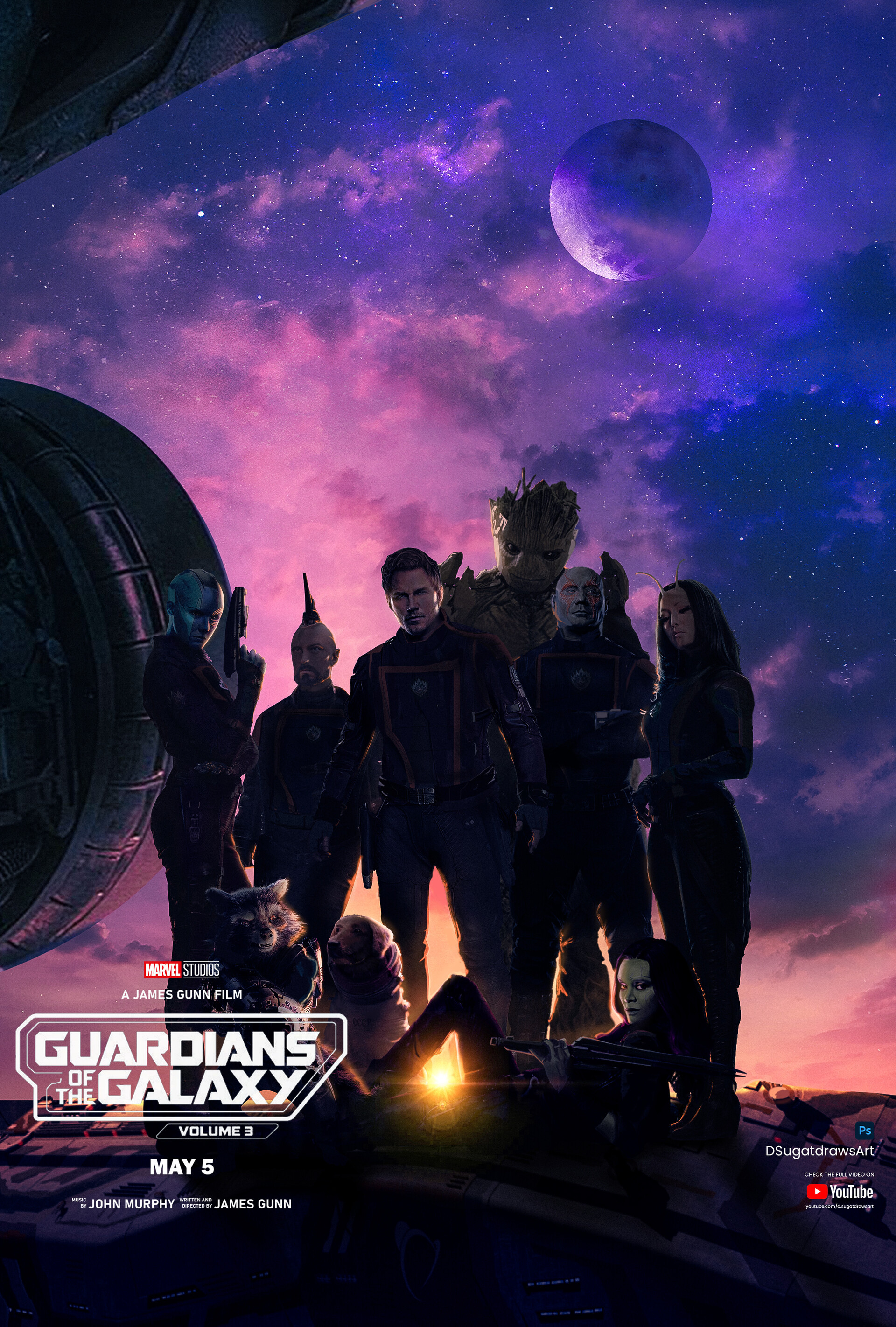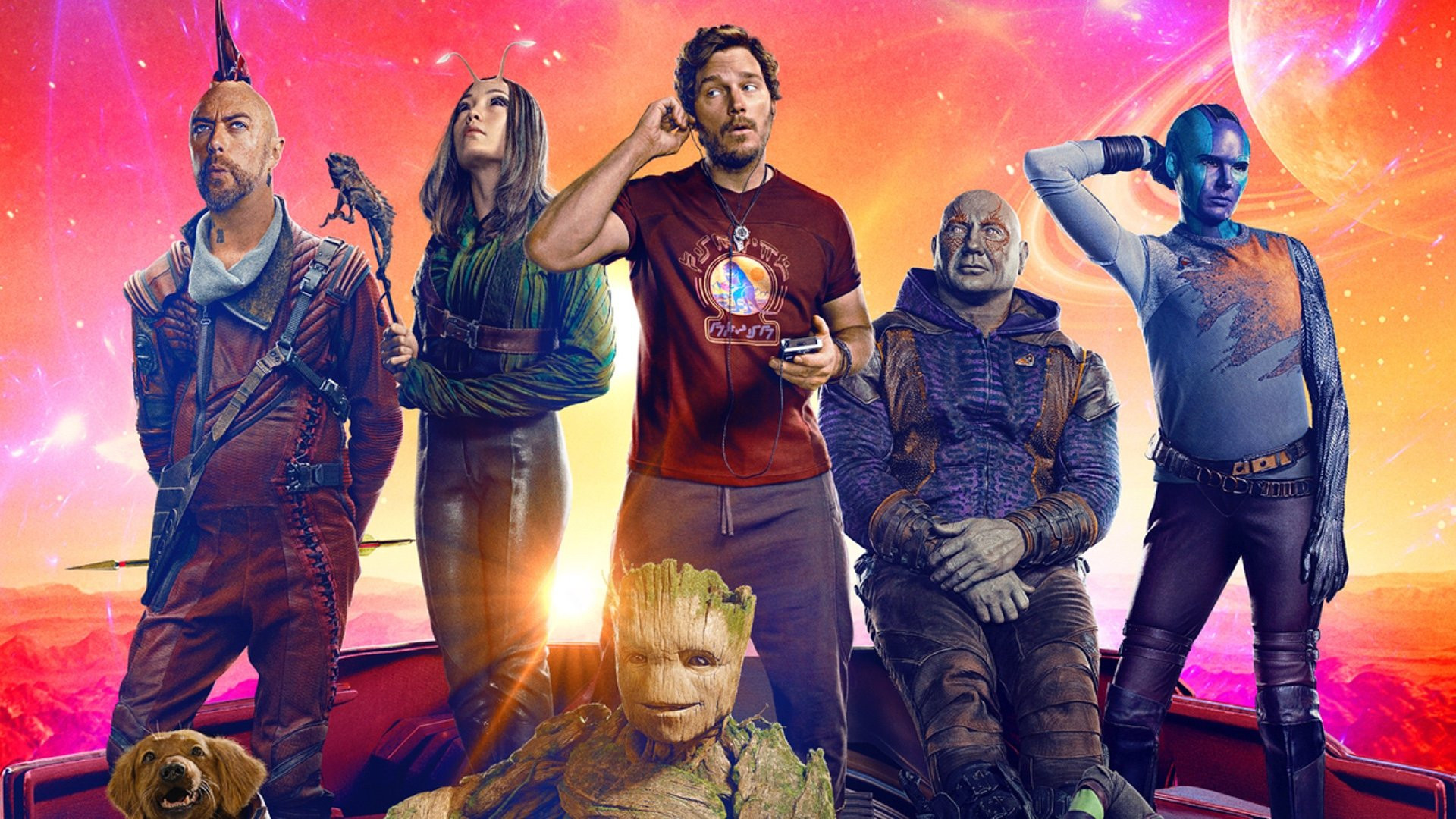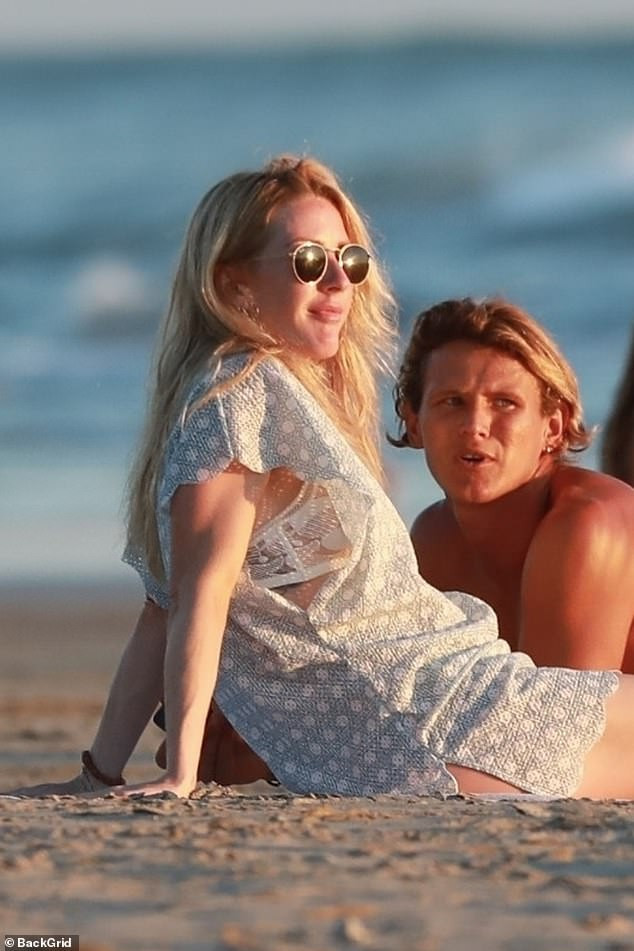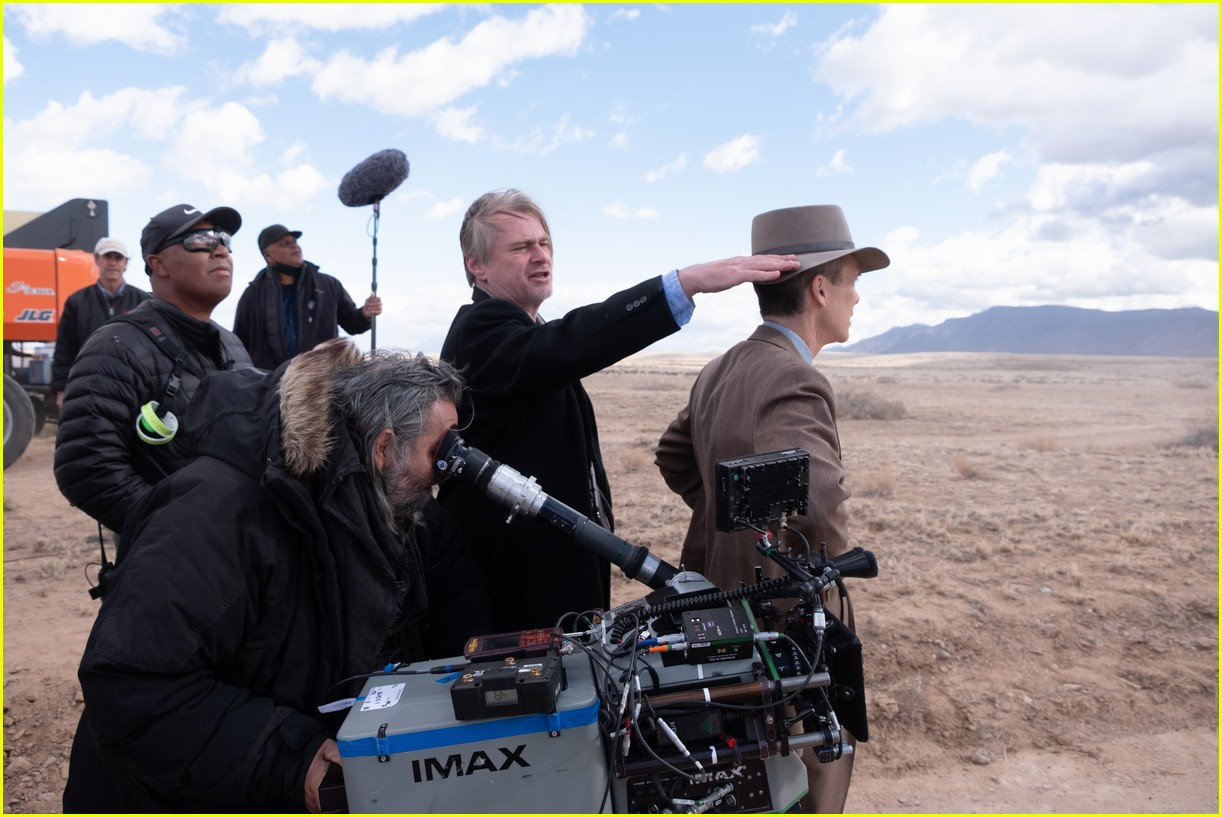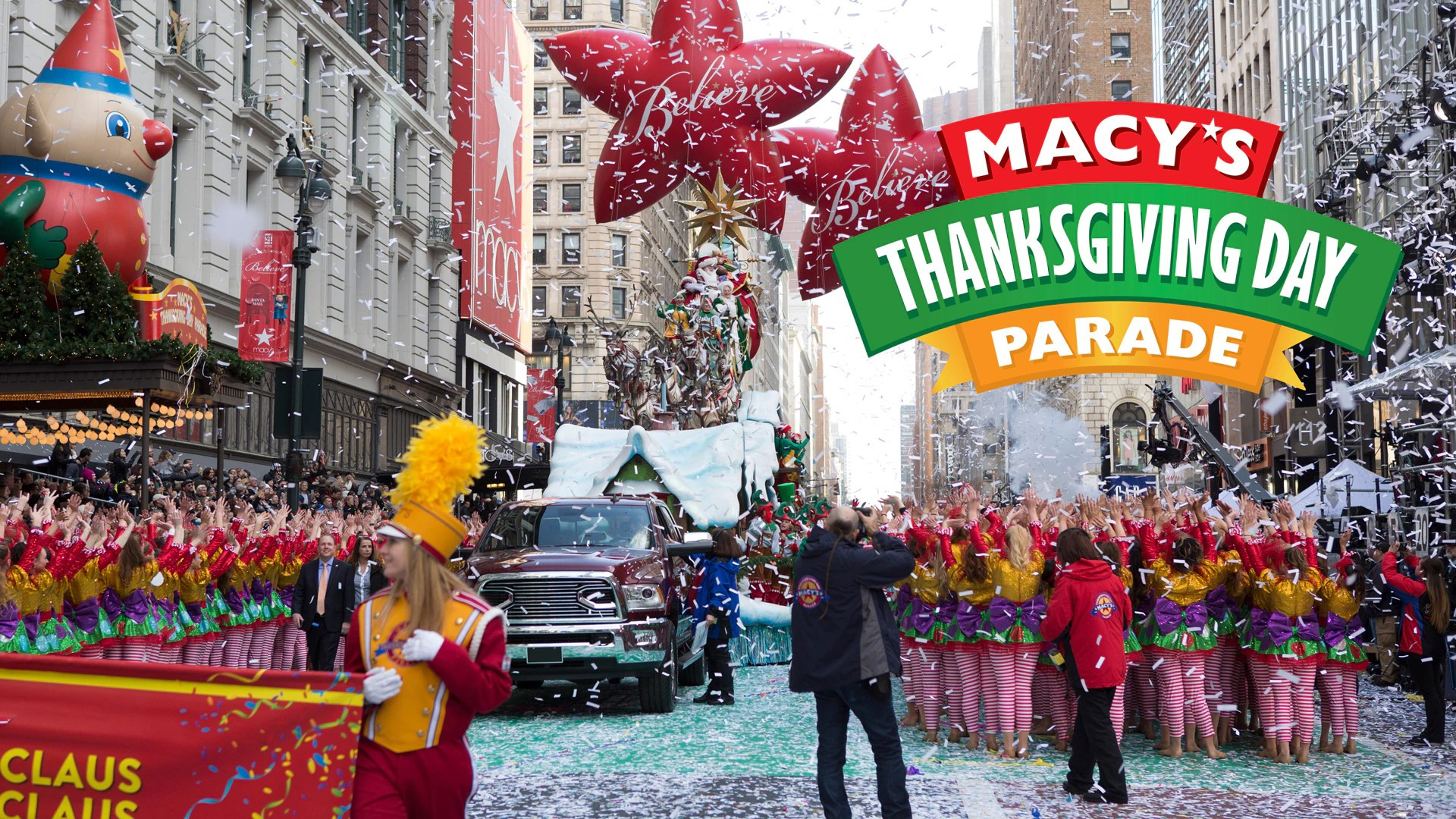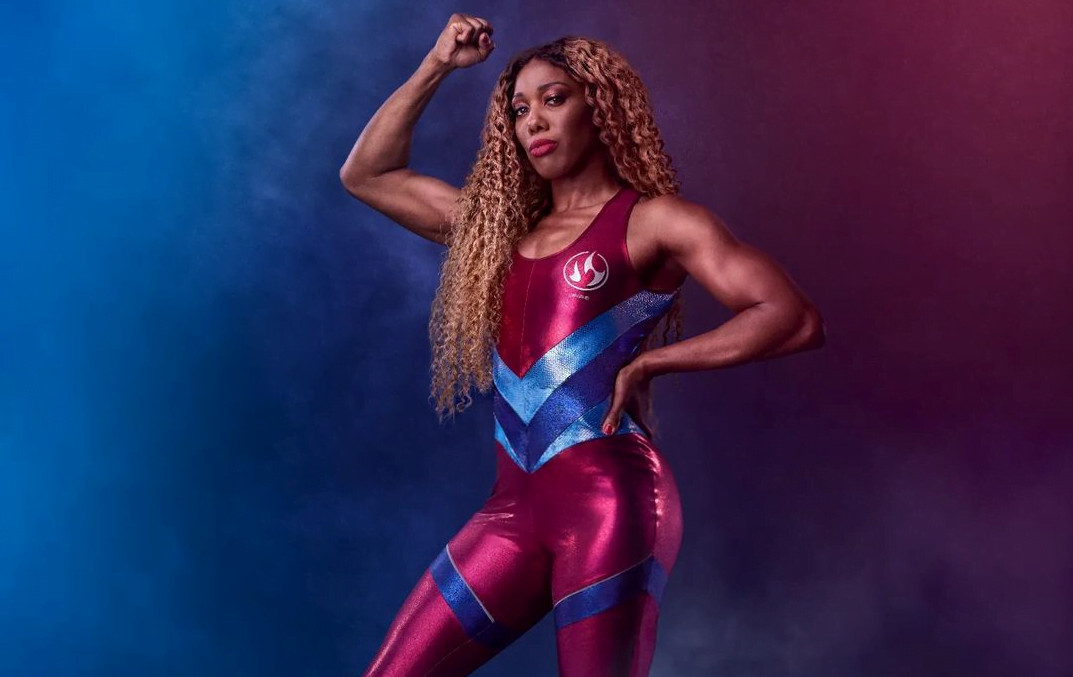There's never a time when I don't feel like watching the "Guardians of the Galaxy" movies, the first of which was released August 1, 2014. That's ten years ago this week. Time flies when a film is a classic. This one is. So are the sequels, even though there are vestigial plot elements from the larger Marvel Cinematic Universe in all three that you have to decide to ignore or look beyond when re-watching, like one of the major characters (Gamora) getting replaced by a "variant" of herself in "Guardians of the Galaxy 3" because she'd died in another movie set elsewhere in the same universe.
It's a testament to the imagination and tonal control of writer-director James Gunn that impediments that might've stopped another trilogy in its tracks become mere speed bumps. Gunn's as much of a pop music obsessive as a comics obsessive—the films are filled with music video-like montages and action set pieces built around specific tunes. So it makes sense to think of the main characters as a band with an evolving lineup and the three movies as albums with no bad songs on them. There's enough individual flavor to stand the test of time, even though the trends and fads that originally brought them into existence have faded.
You could add Gunn's name to a list of distinctive directors who should've made a musical by now, given their creative tendencies, but he already has three times (five if you count "The Suicide Squad" and its spinoff, the Max series "Peacemaker"). The musicality of the movies extends beyond the music-driven sequences. The banter between the characters has a pleasing, teasing rhythm, with delayed punchlines going off at unexpected moments. In each movie, the momentum and goodwill generated by the performances and the filmmaking means that the entire enterprise seems to walk with a spring in its step. Or maybe I should've said "power-walk," which is what Gunn loves to have the Guardians do right before a big action sequence, like band members putting their battle faces on as they move from the wings to the stage and try to forget their egos and become part of a hive-mind.
It's almost a shame that the "Guardians of the Galaxy" trilogy was ever officially part of the Marvel Cinematic Universe. The characters don't pop in the "Avengers"-branded "Infinity War" in the same way that they do in their own features. And of all the films released under that corporate banner—34 and counting—the “Guardians” films come closest to having their own identity apart from the Marvel-Disney brand.
They have a slight edge that belies their PG-13 rating, and it's carried by Gunn's strong empathy for, and personal identification with, his core characters, all of whom are to some degree the sum total of their coping mechanisms after having suffered unimaginable trauma or loss, whether it's Peter Quill, aka "Star-Lord" (Chris Pratt), initially entering the narrative as a bumbling Han Solo-esque "I work alone" type because, as a child, he was abducted by Ravagers immediately following his mom's death from cancer; or Rocket (Bradley Cooper plus visual FX artists) constructing a nihilistic wiseass personality to submerge his pain and rage at having been manufactured in a lab; or Gamora (Zoe Saldaña) and her "sister" Nebula (Karen Gillan) repeatedly trying to kill each other as a result of having their minds twisted by their evil patriarch; or the Ravager leader Yondu (Michael Rooker), an abductee himself, transforming his own negative experiences into life lessons by adopting Peter instead of letting him be eaten, and telling himself he did it because Peter was a small boy who could fit into spaces where an adult smuggler couldn't. (Groot, in comparison, is a bit of a special case: a pure innocent, really—the giant child they all look out for and who intuitively understands the rest of them.)
Quill defines them all as "losers" at one point in the story. The description is not as self-flagellating as it initially might seem. He’s reclaiming the word by redefining a loser not as somebody who cannot or will not "win" but as somebody who's lost something precious but keeps going anyway.
No other character in the MCU franchise is as believably and fully human as the mostly non-human ensemble assembled by Gunn in the "Guardians" films. Like the rest of us, they do things for reasons they don't understand. And they usually strain to justify their actions later, in terms that often don't make rational sense, or try to lie or cover up their actual reasons for doing things, often as a way of saving face in front of a group that treats locker-room style verbal jousting as a bonding mechanism. Gunn also has a rare gift for writing lyrically deluded comic characters who become funnier and funnier the more they dig in their heels defensively when another character successfully defines them, as when Rocket warns that the strongman Drax (Dave Bautista) cannot understand figurative language because his people are "completely literal...metaphors go over his head," and Drax huffs, "Nothing goes over my head. My reflexes are too fast. I would catch it."
Gunn was the beneficiary of a lot of lucky breaks in making the "Guardians" movies, the first one especially. A big one was Marvel supervising producer Kevin Feige's willingness to say yes to the most off-brand of MCU movie adaptations. If Thor, Iron Man, Hulk, and Captain America were the comic book equivalent of a band's greatest hits, “Guardians” was what a pre-Internet DJ would call a "deep cut.” But this proved to be a great creative advantage because there weren't legions of fans champing at the bit to hyper-critique every aspect, and that freed Gunn to make, well, a James Gunn superhero movie. (That's something the general audience had no sense of at that point unless they'd seen Gunn's R-rated "Super," a perverse and subversive vigilante satire starring Rainn Wilson of "The Office" that owes more to "Taxi Driver" than "The Punisher.")
Another advantage was timing. Disney, via its recent acquisition of LucasFilm, was generating a new trilogy of "Star Wars" movies around the same time the MCU entered its cultural dominance phase and Gunn was in production on the first "Guardians." But the first entry in Gunn's trilogy came out almost a year-and-a-half before the first new "SW" film in a decade, J.J. Abrams' "The Force Awakens," which meant that the brand new and shiny according-to-Hoyle "SW" film got compared (sometimes unfavorably) to "Guardians" rather than the other way around. The first movie was not only a huge enough hit to not seem like an underdog in relation to LucasFilm products, it was more cohesive and original. All in all, it got closer to capturing the appeal of the original, medium-redefining 1977 "Star Wars" than "Force Awakens" because of its total commitment to the "band of random losers saves the cosmos" storyline. (The "Star Wars" sequels ultimately abandoned the democratic spirit they tried to impart in "Force Awakens" and "The Last Jedi" by reverting in "The Rise of Skywalker" and tying things back to the same damn royal family the storytellers had supposedly been trying to escape the shadow of.)
Taika Waititi got a lot of acclaim for being one of the few MCU directors to successfully import his own distinctive voice into the franchise with "Thor Ragnarok." Still, the blend of intra-family squabbling, arena rock needle-drops, and goofy-grandiose action showcased in that one had been done first by Gunn and arguably with more consistency and control.
The "Guardians" movies are the kinds of films that some viewers bond with so intensely that they feel protective of them, as if they're friends or family members rather than mass-produced entertainments. That's because all of the characters, no matter how preposterous in conception, come across as real people, as inconsistent and emotionally fragile as anybody walking around on the street where you live, and all the more moving because of it.
Celebrating the 'Guardians' Legacy: 10 Years of Cosmic Chaos
The Guardians of the Galaxy franchise has become a cultural phenomenon, resonating with audiences worldwide. While the characters' unique blend of humor, heart, and action has captured the imagination of viewers, the films' enduring appeal lies in their ability to tap into themes of found family, redemption, and the resilience of the human spirit.
The Star-Lord's Journey: From Sweaty Goofball to Cosmic Icon
Chris Pratt, who brought Peter Quill aka Star-Lord to life, has become synonymous with the role. His transformation from the "sweaty goofball from Parks and Recreation" to a bona fide action hero is a testament to his commitment to the role and the impact the Guardians franchise has had on his career.
More Than Just a Band of Misfits: The Heart of the Guardians
Beyond the cosmic adventures and laugh-out-loud humor, the Guardians of the Galaxy films offer profound insights into the human condition. The characters' unique backstories and personal struggles create a sense of relatability, allowing audiences to connect with their journey of self-discovery and finding purpose in a chaotic universe.
The Power of the Ensemble: The Guardians' Chemistry
The Guardians' success lies in the dynamic chemistry between its diverse cast. Each member brings a unique personality and set of skills to the team, creating a captivating ensemble that is greater than the sum of its parts. The banter, the camaraderie, and the emotional bonds that develop between the characters make them feel like a real family, a sentiment that resonates with audiences on a personal level.
The Legacy Continues: The Future of the Guardians
While the Guardians' journey might have ended with "Vol. 3," their legacy continues to inspire audiences. The films' enduring popularity has cemented their place in pop culture, and their impact on the superhero genre remains significant.
With the introduction of a new generation of heroes and the ever-evolving landscape of superhero films, the future of the Guardians of the Galaxy remains uncertain. But one thing is certain: their impact on the cinematic universe will continue to be felt for years to come.




